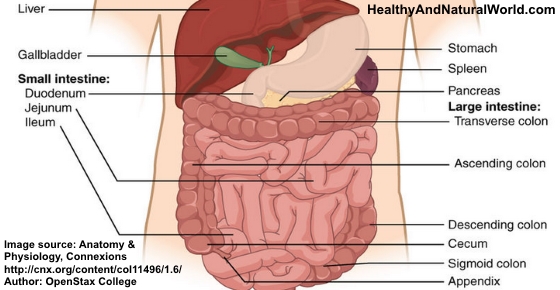Scientists Explain What Happens To Your Body When You Skip Meals

We are all sometimes tempted by what we perceive to be a shortcut, only to realize we in fact took a detour. In their attempts to lose weight quickly, many people turn to fasting. But skipping meals is no time saver. When done a few times, it doesn’t present a big problem. However, when it becomes a habit or a part of a dieting strategy, it can have long-term effects on the body and even contribute to the development of some chronic conditions.
Moreover, by skipping meals, you don’t get any closer to developing a healthy-looking body. In fact, doing it might make it even harder for you to get rid of the extra weight.
Skipping Meals Causes Blood Sugar Rollercoaster
When you skip a meal, you don’t supply your body with the fuel it runs on. Consequently, your blood sugar levels drop and the body experiences a shortage of energy. Glucose (sugar) is something that all our organs need for normal functioning and it is very important for optimal brain activity. Within four to six hours of your last food intake
- The brain starts experiencing fuel shortage.
- You become tired, sluggish, moody and irritable.
- Your cognitive functions are affected, and you might have difficulty with attention, memory, concentration and general mental performance.
When you are physically and mentally feeling unwell, this of course affects all areas of your life. For example, you might want to give your exercise session a miss, because you’re simply not feeling energetic enough to do it. Or, you start craving unhealthy snacks just to bring those sugar levels up. Sticking to a healthy eating routine can become much more difficult when you skipped your last meal.
When your sugar levels drastically fluctuate between highs and lows, your dieting efforts get seriously compromised. Also, insulin – the hormone that regulates glucose levels – gets disturbed. There is a chance that you are contributing to the development of diabetes later in life.
Skipping Meals Changes Your Metabolism
If you’re set to lose weight, you really want your metabolism to be working well and fast as it will be much easier for you to lose weight if you increase your metabolism. This will help you to burn calories faster with less effort.
Read about these 10 foods that can increase your metabolism as well as 10 factors that affect your metabolic rate.
However, when you skip meals, this slows the metabolism down. It gives it nothing to do. Next time you provide it with food to break down, it finds it harder to kick in. As a result, the food transforms into fat more readily and gets deposited in all the places you don’t want it to be.
When your body enters into starvation mode, it looks for new sources of energy. Your metabolism starts transforming fat into energy. This might sound like a good plan, but can have health consequences that include:
- nausea
- constipation
- fatigue
- kidney stress
- low blood pressure
With time, the body gets used to the food shortage and starts holding on to fat stores, while reducing your lean muscle tissue.
Studies Related to Skipping Meals
A study published in the medical journal Metabolism, looked at what happens when people skip meals but end up eating just as much as they would in a normal day when they finally do sit down to a meal.
The researchers found that skipping meals during the day and eating one large meal in the evening resulted in potentially risky metabolic changes. The meal skippers had elevated fasting glucose levels and a delayed insulin response — conditions that, if they persisted long term, could lead to diabetes.
In another study published in the American Journal of Clinical Nutrition, researchers assessed the effects of two meal patterns, each on healthy normal-weight adults. The study examined a one meal a day diet vs. the traditional three meals per day.
The researchers found that the systolic and diastolic blood pressures were significantly lowered by about 6% during the period when subjects consumed the three-meal-a-day pattern compared to when they were on the one-meal regimen each day.
But that’s not the only bad news for meal skippers. Both the total and artery clogging-LDL cholesterol were higher for the meal skipping group, with total cholesterol up by 11.7% and the LDL by a whopping 16.8%.
The Conclusion
Proper nutrition is paramount to your health and can help improve and prevent numerous conditions, including cardiovascular disease, cancer and stroke.
There are no shortcuts, and in the long run, skipping meals will only harm you. It’s much better to design a sustainable eating and exercising plan and make it a part of your daily life.
If you want to lose weight there are better ways to do it than skipping meals: you can use my 9 secrets of losing weight without diet or you can use these 12 simple tweaks for weight loss.
You can also find a lot more information on how to lose weight and get rid of your belly fat in my book Blast Your Belly Fat – this is the ultimate guide for losing your belly fat fast.
